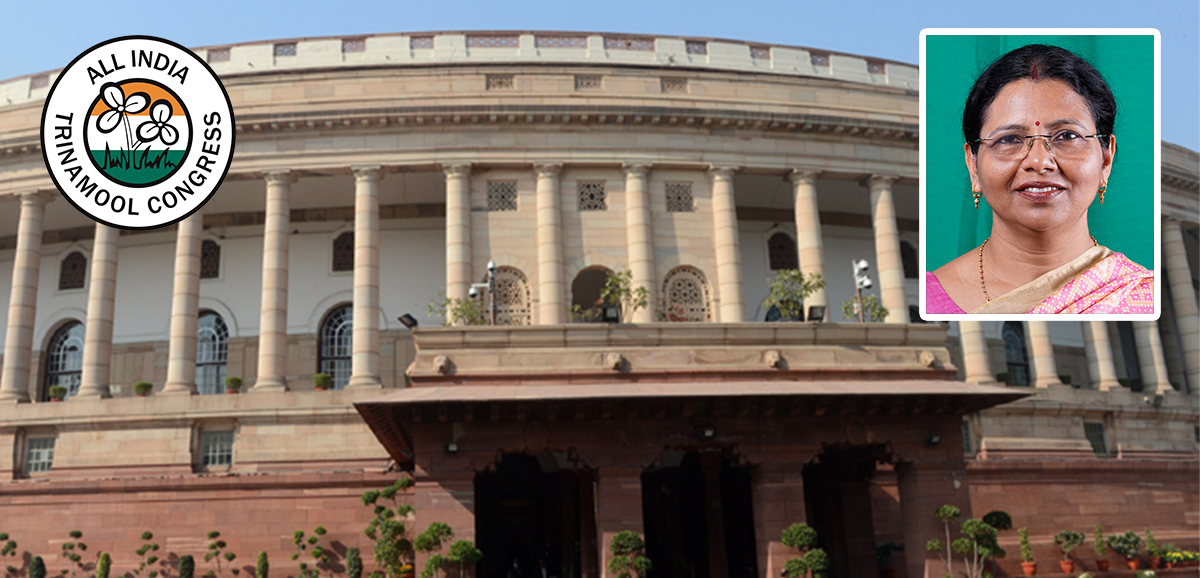July 3, 2019
Pratima Mondal speaks on The Dentists (Amendment) Bill, 2019

FULL TRANSCRIPT
Thank you Sir for giving me the opportunity to speak on The Dentists (Amendment) Bill, 2019. Sir, health is wealth and respected doctors are the resources to make our society wealthier in terms of health. There are several Acts in the Constitution, which encompasses this sector. Oral health is equally crucial as any other part of our body. But, it is neglected by the majority. Better awareness and Acts are required to change this notion.
The Dentists Bill, 1948 came into being from March 29, 1948 and since then it had been modified several times, frequently. Basically the Act provides for two groups of dentists classified under Indian Dentists Register, namely Part A – the one positing proper qualification, and Part B – Indian citizen practicing dentistry without technical education, at least 5 years prior to the registration date notified.
Here it is very important to know that the situation then was completely different. There was a dearth for proper dental institutes. There hardly existed any dental institution that would take care of dental health of the masses. This is the major reason for provision under Part B. This is the reason why a lenient approach was opted and persons displaced or repatriated from neighbouring countries, as mentioned in the Act, were given a chance to carry on their means of their livelihood.
The last registration that took place in Part B was in 1972. At that point of time representation in the Central Council required a certain sense of equality and hence the provision ensured to dentists of Part B along with four others from the government side.
But, today the ratio of Part A – Part B is 2.7 lakh – 950. We certainly do not require any form of safeguard. Hence, The Dentists (Amendment) Bill, 2019 seeks to remove from the legal framework the representation of dentists who do not have technical education. Also, it should be noted that the last registration occurred in the year 1972, which denotes that the age of those doctors will be around 70 to 75 years. Being a responsible society it is our duty to give opportunity to the younger population, since they will leave the country forward. Thus the subject matter of the Bill justified. But, I severely oppose this Bill on the ground that the members will be nominated by the Government. The essence of democracy lies in empowering its people by giving them the right to choose.
By depriving this right in the Council the government is trying to break the pillars of this right. By nominating members in the Council the transparency will be lost. The ruling parties will always favour members who are related to them. This should be amended and all the members must be elected.
The Act provides for a Central Council, which ensures curriculum in institutions, registering the passouts of dental colleges, and very importantly, secures the ethical code of conduct. Thus it is the backbone of dental health of our country. On this note, I would like to ask the minister, through you Sir, whether the government seeks to fix a minimum qualification for the members of the council. This is so because in the present scenario the members do not have any minimum requirement. Whereas, the council being a regulated body, needs experience and highly qualified members.
In the absence of minimum qualified members, the doctors who have not pursued MDS or are highly experienced are also allowed to have as say in the syllabus and all other crucial matters. This simply cannot add value in the functions later to be discharged by the council. Thus, we see that the question of whether does not arise; rather it is an urgent requirement to fulfil the minimum criteria.
It is also important for us to provide support to this sector. Out of 310 dental colleges only forty are government institutions. A major setback is the uneven distribution of colleges, such as States like Jharkhand or the north eastern States have very few colleges, compared to other States.
Again, as per the World Health Organisation, the provision of oral health care in rural parts of India is negligible. Various studies have concluded that the unmet treatment needs of the population is very high and the service provided are inadequate.
Records also show that five per cent of graduates are employed in the government sector, whereas the rest 95 per cent are unemployed or in the private field, among which very few can afford the expensive latest technology. Private practices, clinics require a heavy investment which is unavailable to the young doctors.
Thus, I would like to conclude by saying that the proposed amendment is a small step forward which requires a big leap. Our prime focus is to spread awareness among the people, provide better job opportunities, improve the infrastructure of the institutions and most importantly to recruit the truly deserving candidates in the Central Council.
Thank you, Sir.
